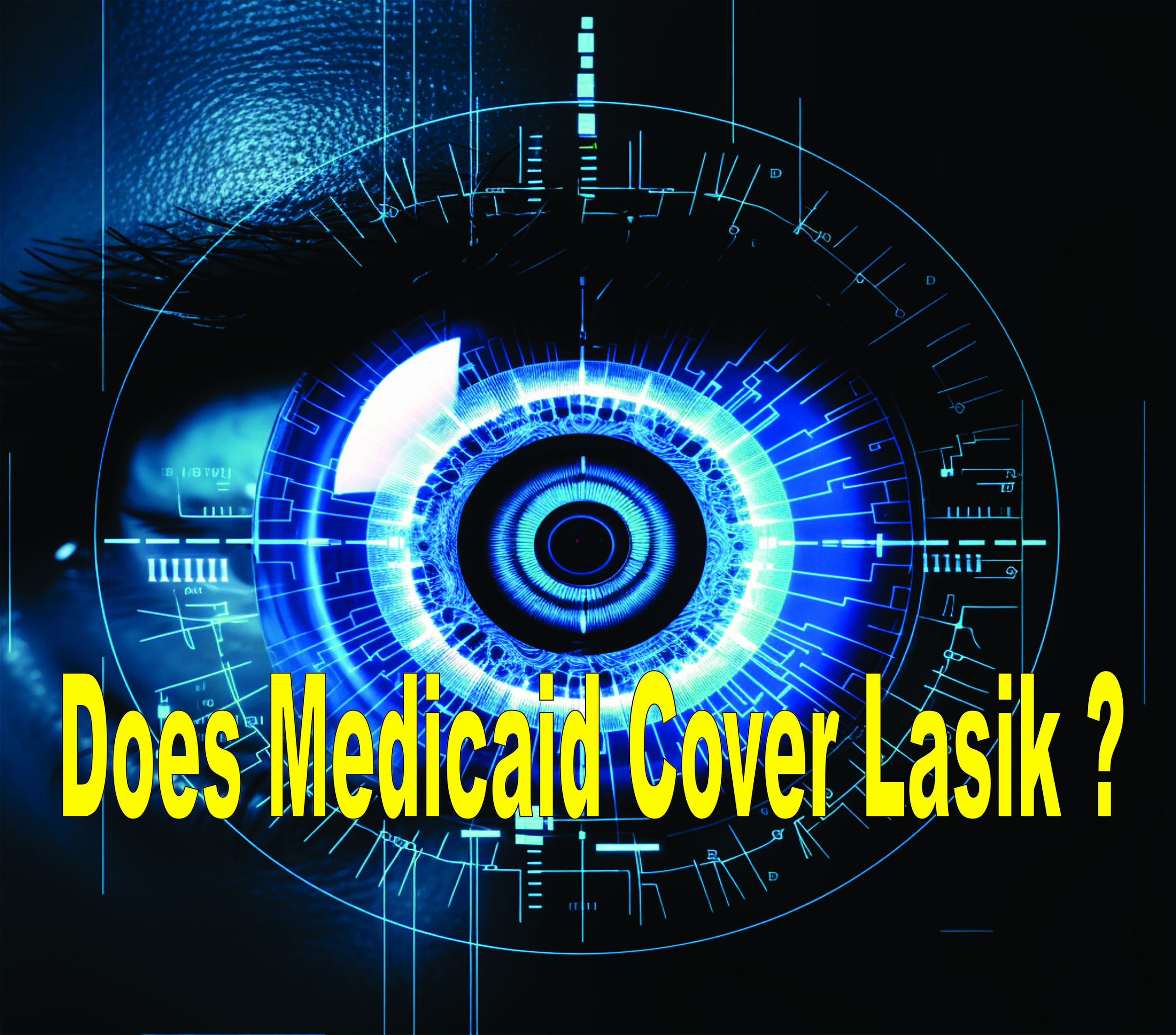Last Updated on November 6, 2023 by Lori Pace
Many Americans always wonder whether Medicaid covers Lasik.
Unfortunately, LASIK, despite all its benefits, is not covered by Medicaid programs. Medicaid covers typically routine eye exams, corrective lenses, prescription glasses, and low vision aids.
Let’s talk Medicaid lingo: they’ve got your back for routine eye checkups, prescription glasses, and even those low-vision aids. But here’s the twist: those pesky myopia and other refractive villains? They can throw a wrench in your reading and working game. Trust me, I’ve been there – blurry vision, eye strain, migraines, you name it. Age? Doesn’t matter, these foes don’t discriminate.
Let’s dive into the nitty-gritty: Lasik is like a magic wand for those pesky refractive issues. I’ve been there – squinting at signs, struggling to read the fine print. But here’s the kicker: Lasik’s effects are here to stay, unlike the endless cycle of contact lenses and glasses. Let’s be real, though – it won’t stop the clock from ticking, but it can do wonders for your cornea, giving you a clearer view of the world.
Medicaid will cover the cost of prosthetics, contact lenses, and medication for eye conditions when they are necessary. Lasik may be required for those who cannot wear glasses or contacts due to medical reasons. Medicaid will pay for the cost of LASIK in these cases. You should check the local regulations to determine if your state has different coverage.
In which case Medicaid Covers Lasik Surgery?
In the following situations, Medicaid covers Lasik procedures for refractive problems:
- An injury is the cause.
- Caused by an operation in the past.
- The refractive problem is serious.
- A patient is unable to wear glasses or contacts because of physical limitations.
If a traumatic injury is severe enough that the patient needs Lasik to fix it, a doctor may approve the procedure as necessary. A Lasik procedure performed initially for cosmetic reasons can now be causing vision problems.
If a doctor agrees that Lasik is the best option, Medicaid will cover the cost. Medicaid will cover expenses for such cases in the same manner as it covers other types of operations.
Coverage will vary depending on where you live. The operation must be performed by a doctor and in a facility that is covered under Medicaid.
How To Get Medicaid to Pay for Your Lasik Operation?
Okay, let’s tackle this together: Medicaid isn’t exactly throwing a party for Lasik procedures. But wait – there’s a ray of hope. Medicaid might just roll out the red carpet if the surgery is medically necessary, not just a ‘nice-to-have.’ Here’s what I’ve learned: reach out to your Medicaid provider and uncover what they consider ‘medically necessary’ in the vision department.
Next, contact an eye specialist, preferably the same one who will perform the operation. This will help you determine if you have met any conditions as set forth by your Medicaid provider. Many times, an approved eye specialist will be able to help you meet the requirements.
I’ve been down this road, and let me share the scoop: if you’re in Team Medicaid and you see a Medicaid-approved doc, chances are they’ve got the lowdown on what’s in and what’s out. But hey, what if you’re rocking both Medicare and Medicaid? Brace yourself, because the dynamic duo – Original Medicare (Part A & B) – could pitch in a slice of the pie. And guess what? Medicaid’s got your back for those copayments, deductibles, and coinsurance.
If you have only Medicaid coverage, Medicaid will pay the entire cost of the procedure if it is medically necessary.
How Much Does a Lasik Operation Cost without Medicaid?
Let’s dive into the numbers game: Lasik doesn’t come cheap, especially in the US. Picture this: the average cost hovers around $2200 per eye. Now, hold on – each eye’s on the operating table for just 10 minutes. But hey, here’s a curveball: your location can spike the price to a hefty $4000 per eye. Pro tip: steer clear of those budget-friendly Lasik deals – like that tempting $500 option.
Trust me, it’s like a suspense movie – hidden costs will pop up when you least expect them. And remember, the final bill depends on factors like the complexity of the surgery, the gear used, and the specific issue you’re tackling.
Avoid hospitals that offer Lasik at a low price, like $500. You’ll likely find hidden costs later. Prices for Lasik depend on many factors such as the severity and location of the operation, the equipment used, the technology employed, and the type of refractive problem.
Before you commit to a surgeon or clinic, it is important that you do your research. Many insurance companies, such as Medicaid, have a list that recommends eye specialists who meet certain standards of honesty and credibility. It is worth taking your time to find the right surgeon to ensure a successful and long-lasting Lasik procedure.
Do You Have Other Coverage Options?
Medicaid isn’t the only player in town. If you’re diving into the Lasik world, there might be a lifeline beyond Medicaid’s shore. Ever heard of HSA or FSA? Those savings accounts can be your knights in shining armor. And guess what? They’re on board with laser vision fixes, as the RSC nods in approval.
Time for a financial strategy chat: those HSA/FSA funds? They can be your golden ticket, covering some or maybe even all of the Lasik expenses. But hey, here’s a game-changer: your eye doc? They’re like your financial advisor in this surgery journey. And guess what? Hospitals aren’t just about white coats – they’re offering payment plans that let you ease into the Lasik financial realm. Sure, there’s no interest lurking, but that upfront deposit dance? It’s a thing.
Ask about hidden fees, late payment fees, and prepayment penalties. Your employer may also be able to assist. Many companies offer discounts to their employees for eye surgery, dental work, and other services that Medicare or Medicaid does not cover.
Large enterprises offer vision benefits to their employees as part of their private medical coverage. Besides, if you have vision problems or wear glasses, you might consider purchasing vision insurance. According to the RSC (Refractive Surgery Council), some vision insurance providers offer discounts of up to 50% for Lasik and refractive eye surgery.
Final Thought
Let’s wrap it up with this nugget of wisdom: Lasik, being an elective journey, doesn’t usually catch Medicaid’s attention. But guess what? There’s a silver lining, a realm of better options.
Now, picture this: Medicaid’s like a ship sailing through state waters, and coverage? It’s like a treasure map that varies depending on your location and the ‘medically necessary’ stamp. Curious for more Lasik intel? Take a virtual stroll on the Medicaid website or give your local agency a friendly ping.



